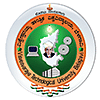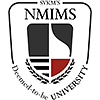M.Phil in Clinical Psychology Syllabus and Subjects

The Master of Philosophy in Clinical Psychology is a two-year postgraduate course that emphasises scientific and behavioural advancement in the wake of mental health care. The course subjects include Behavioural Science, Cognitive Development, Statistical Analysis and Counselling.
M.Phil in Clinical Psychology Syllabus
The four-year M.Phil in Clinical Psychology course is divided into four semesters. In the first year of research, students will become familiar with behavioural science, psychiatry, and counselling. The rest of the semester will be devoted to projects and clinical internships. Below is a semester-by-semester breakdown of the syllabus of the M.Phil in Clinical Psychology.
M.Phil in Clinical Psychology First Year Syllabus
|
Semester I |
Semester II |
|
Statistics |
Research Methodology B |
|
Research Methodology A |
Psychological Testing B |
|
Philosophy Of Research |
Psychological Foundations Of Behaviour B |
|
Qualitative Research Methods |
Understanding Psychological Problems B |
|
Psychological Testing A |
Psychiatry B |
|
Psychological Foundations Of Behaviour A |
– |
|
Understanding Psychological Problems A |
– |
|
Psychotherapy |
– |
|
Psychiatry A |
- |
|
Statistics |
- |
|
Research Methodology A |
- |
M.Phil in Clinical Psychology Second Year Syllabus
|
Semester III |
Semester IV |
|
Biological Foundation of Mental Health |
Community Mental Health |
|
Psychotherapy and Counselling |
Biological Foundations of Mental Health |
|
Behavioural Medicine |
Research Dissertation |
|
Dissertation |
– |
|
Biological Foundation of Mental Health |
- |
|
Psychotherapy and Counselling |
- |
M.Phil in Clinical Psychology Subjects
The M.Phil in Clinical Psychology Course is designed to provide applicants with theoretical knowledge of the expanding healthcare sector, especially in the field of mental health care. The entire course is primarily based on behavioural and cognitive learning principles.
M.Phil in Clinical Psychology Core Subjects
One of the topics of the M.Phil Project Clinical Psychology is a real-time collaborative project between an internship and a clinic. The following is the M. Phil major in Clinical Psychology.
- Physiological Foundation of Behaviour
- Psychopathology
- Biological Foundations of Behaviour
- Psychiatry
- Psychotherapy and Counselling
- Behavioural Medicine
- Statics and Research Methodology
M.Phil in Clinical Psychology Course Structure
The M.Phil in Clinical Psychology Program consists of a series of core and elective courses. This course focuses on behavioural development, cognitive development, mental health awareness, and counselling internships. It is divided into 4 semesters in 2 years. The course consists of
- Two Years
- Core Courses
- Capstone And Real-Time Projects
- Clinical Internships
M.Phil in Clinical Psychology Teaching Methodology and Techniques
In M.Phil in Clinical Psychology hands-on experience and actual projects are essential for developing the relationship between a psychologist/psychotherapist and patient. Students learn how to handle patients with extreme conditions, analyse their behaviour patterns, run tests and have healthy interactive sessions.
Behavioural education and traditional education are combined in many real-world projects. Students will be encouraged to learn about the patient's health care system, clinical management, and patient observation as part of the final project. In a nutshell, the lesson's structure is as follows:
- Case Studies
- Capstone Projects
- Real-time Projects
- Clinical Internships
M.Phil in Clinical Psychology Project
The topics of the M.Phil in Clinical Psychology project are based on workshops and seminars conducted by the university in collaboration with clinics, hospitals and famous psychologists. Graduates are actually ready to work. projects allow them to demonstrate their skills and strategies while motivating them to engage in real-world situations. Some of the projects are listed below:
- Psychodynamic Therapy with addictive individuals
- Childhood Neurosis and Adult Mental Health
- Dreams and Emotions in Situation of Childhood Abuse
- Psychodynamic and Psychology in Sexuality
- Structure and Function of the Psyche
- Psychoanalytic Play Therapy
M.Phil in Clinical Psychology Reference Books
There are various books that touch on different topics on the M.Phil in Clinical Psychology course syllabus. These books provide guidelines and basic information on behaviour development and theories. Listed below are some M.Phil in Clinical Psychology books for reference:
|
Name of Book |
Author |
|
Psychological Testing |
Ronald Jay Cohen and Mark E. Swerdlik |
|
Introduction to Psychology(8th-10th Edition) |
Rita Atkinson and Hilgard |
|
Theories of Personality |
Hall, Lindzey, and Campbell |
|
Cognitive Psychology |
Robinson-Riegler |












